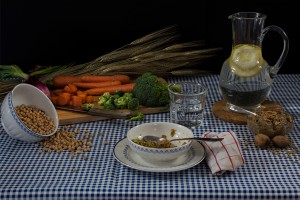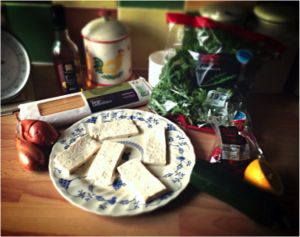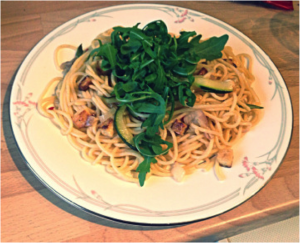Vegans are gaining a new status in society as a group following a progressive and trendy lifestyle. The increased popularity for the diet led Forbes.com to describe veganism as one of the food trends of 2013. Vegans commonly fall into one of three categories or ‘type’ these are: ethical, environmental or dietary. Ethical vegans avoid the use of animal products entirely for animal rights reasons. Environmental vegans also avoid the use of all animal products but are motivated by conservation rather than animal rights. Finally, dietary vegans simply avoid eating any animal products for health reasons. Vegans following the lifestyle for dietary reasons are getting the most elite representation. Bill Clinton and pop culture royalty, Beyonce and Jay-Z, have recently trialed the vegan diet. Some vegan advocate groups contest whether celebrity uptake of the vegan diet is useful in raising awareness of the moral reasons behind the vegan lifestyle. Kylie Fackrell, co-founder of TeenVGN (a group set up as a social and advisory group for young vegans), is skeptical of this trend. ‘I don’t really think that it has made much of a difference, as most celebrities only do it as a fad or a very short period of time.’ Kylie goes on to explain that ‘when celebrities go vegan for diet, I believe that they aren’t advocating either, so it’s not so able to receive good attention. Especially if they continue wearing fur!’ This is in reference to Beyonce’s somewhat careless blunder of wearing a fur collar to a vegan restaurant in LA last month.
The conflict between veganism as a trend and as a conscientious lifestyle is becoming an ever more prominent issue for vegan activists. In many ways, the more ‘trendy’ veganism is, the more media coverage it gets. However, there is some scepticism as to how useful this coverage is.
Image from http://www.teenvgn.com/.
Samantha Calvert, Media and PR manager for The Vegan Society recognises some positivity to be gleaned from the new vegan fashion. When discussing the trend she explains it is ‘coming across the Atlantic from trends in the US and especially among high profile celebrity and successful business people.’ Samantha went on to describe that ‘the diets of the beautiful, successful and affluent are automatically an aspiration.’ She links this aspiration with an increase in ‘positive media coverage’ of veganism. Samantha proudly announces: ‘The Vegan Society has arguably seen more positive interest in veganism (as in positive media coverage) in the last 12 months than at any time in its history.’
Unsurprisingly there has been an increase in noise from the web around this new trend, especially on social media such as Instagram and Buzzfeed. Instagram is littered with recipe posts mainly from young attractive girls promoting diets that are ‘whole’ and ‘plant based.’ These phrases seem to be becoming synonymous with the vegan diet. Accounts such as ‘blissedout,’ ‘walktheearthvegan,’ ‘mmmoky’ and ‘veganmetolife’ attract thousands and even tens of thousands of followers. Buzzfeed, with its talent for picking up new trends, has recently taken to posting an increasing number of articles dedicated to vegans such as: ‘14 vegan cheeses that will make you forget about the real thing,’ ‘26 vegan versions of your favourite comfort foods’ and ‘57 reasons to try veganism.’
Samantha from the Vegan Society points out that ever since the term ‘vegan’ was coined by Donald Watson (the founder of the Vegan Society) and his wife in 1944 it has ‘been more than a diet and has encompassed a whole lifestyle based on avoiding wherever practically possible the use of animals.’ She speaks somewhat skeptically of the US habit of describing the vegan diet as ‘plant based’ and omitting the ‘true’ vegan cause, which she describes as ‘a concern for animal welfare.’ She explains that it also sidesteps another significant benefit and reason for uptake of the vegan diet which is ‘a concern for the environment or because of global food security.’
Still life of Gwyneth Paltrow’s “Strict Detox Diet” by Dan Bannino.
A sincere respect for animals is at the heart of many who take up the vegan lifestyle. As with vegetarians, vegans believe that it is not necessary for animals to suffer in order for humans to feed themselves. However, vegans believe that this suffering is just as prominent in the egg and dairy industry. For example, the process in which calves are taken from the mother cow almost immediately after birth is viewed as morally unacceptable. Many vegans also notice the fragile state of the environment, with rising temperatures, shifting weather patterns, rising sea levels and melting icecaps and glaciers. Vegan advocates often emphasize that farming livestock, particularly factory farming and fishing, are environmentally unsustainable. The environmental benefits of veganism are confirmed in a 2010 UN report, which stated that ‘a global shift towards a vegan diet is vital to save the world from hunger, fuel poverty and the worst impacts of climate change.’
There is little evidence as to how the new vegan trend has influenced the number of people adopting a ‘true’ vegan lifestyle. It is undeniable that veganism is on trend, but the nature of ‘trends’ is, naturally, somewhat transient. So while the mantra ‘all press is good press’ applies to a certain extent, it seems that when it comes to the ‘true’ ethical and environmental foundations of veganism, ‘true’ vegans may have some work to do in terms of preserving the important motivations behind the vegan lifestyle.
Interview with Samantha Calvert, Media and PR manager at The Vegan Society
Interview with Kylie Fackrell and Laura Edwards, Founders of TeenVGN
Super simple ‘buttery’ garlic spring spaghetti
This spaghetti is quick, easy to make and uses barely any ingredients all of which can be bought in most supermarkets. I bought all of mine in a Sainsbury’s Local!
It also contains protein, carbs and veggies so, depending on how ‘buttery’ you make it, it’s also pretty healthy.
Ingredients (to serve 2)
1/2 pack of ‘Cauldron’ Tofu
Dried spaghetti
1 small onion
1 small courgette
4 cloves of garlic
Half a lemon
1 small chilli without seeds (or chilli powder)
Olive oil (or dairy free margarine)
Balsamic vinegar
Vegan Bouillion Powder (this can sometimes be hard to find but any veg stock works)
Method
- Half an hour in advance ‘press’ the tofu. I do this by thinly slicing it, placing it on kitchen roll on a plate, putting more kitchen roll on the top, and then putting anything heavy on top (books, tins of beans etc).
- When pressed, chop the tofu into small cubes and marinade in balsamic vinegar, salt, pepper and a sprinkling of boullion. I don’t use oil because it prevents the tofu from absorbing the flavours effectively.
- Place the tofu on a very lightly oiled baking tray and put under a medium grill for 5-10 minutes each side until crisp.
- (This is usually a good point at which to put the spaghetti on to cook.)
- Thinly chop the onions and garlic and fry them on a low heat with plenty of olive oil and seasoning (salt/pepper) until soft.
- Thinly slice the courgette into long strips and add to the onions along with the chilli and 2 teaspoons of bouillion + more oil!
- When the spaghetti is ‘al dente,’ drain and mix everything together. Add seasoning (bouillion, oil, salt, pepper) to taste + the juice from half a lemon + the crispy tofu and serve with plenty of rocket!
Recipe and blog by Jess Black


